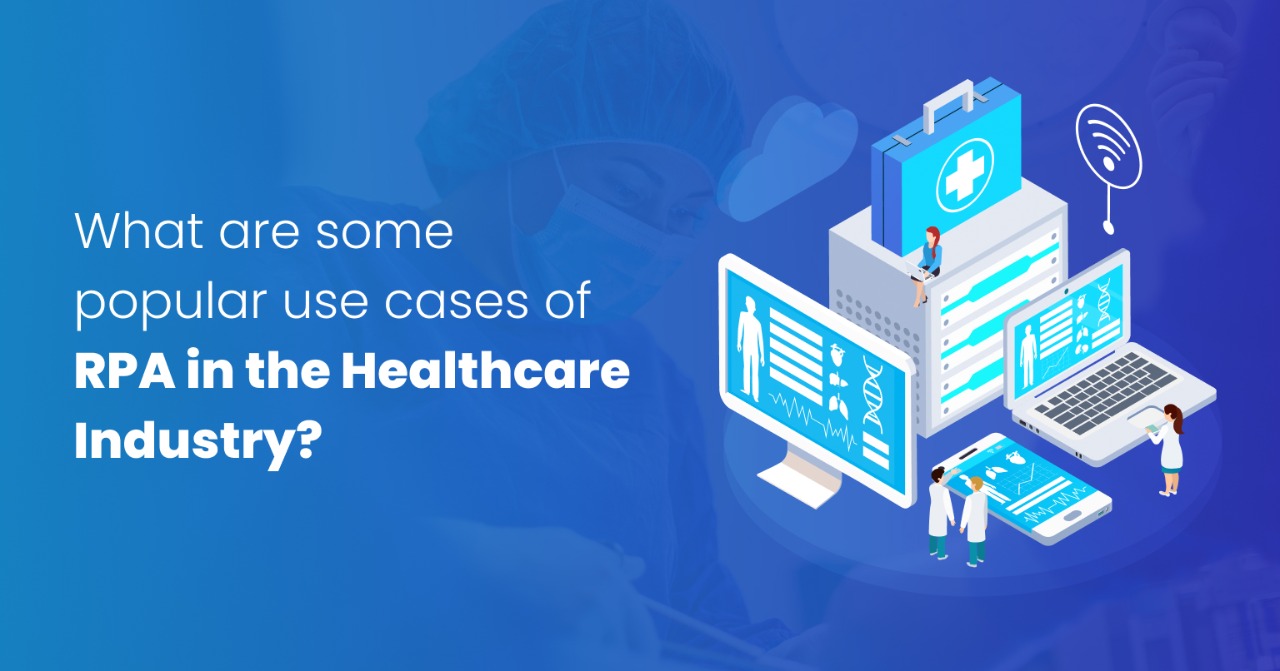Recently, Max Healthcare Institute, situated in New Delhi, implemented an RPA platform, to streamline processes and identify areas where robotic automation might be implemented with the greatest benefit. Adopting RPA brought in reduced turnaround times. For claims processing, the TAT was reduced by at least 50%. Unbelievable right?
Identifying RPA use cases in the healthcare sector can help businesses understand why it’s worthwhile to invest in new technologies and automate operations, both inside and outside of the AI realm. When a large portion of a medical practitioner’s time is spent on administrative tasks, the customer—the patients—end up paying the price.
When compared to manual labour, automated methods have proven to be faster, more streamlined, and less faulty. Let’s look at some of the most common RPA applications in healthcare:
Quick processing of claims
The successful operation of healthcare institutions relies heavily on claim handling. If done manually, the entire process of setting claims will be riddled with clerical errors that could lead to financial disaster. RPA bots can be programmed to recognize exceptions and regulations relating to compliance and non-compliance, hence expediting the entire process of processing insurance claims.
Patient Remote Monitoring
RPA in healthcare has a number of advantages, including increased accuracy and speed. These advantages help with patient record management and assist healthcare providers in developing a standardised prognostic strategy that meets the health goals of their patients.
Improved care cycle
Robotic Process Automation’s continuous remote monitoring creates data that can be used to make an accurate diagnosis. Furthermore, it aids in the development of the best diagnosis and specific care cycles. The interesting part, though, is that RPA can allow doctors to be more accessible to their patients. RPA bots can maintain and manage all the important yet mundane duties. This frees up time for healthcare providers to attend meetings and provide better medical treatment to their patients.
Management of Workflow
Case management, discharge, producing and allocating prescriptions, patient admission, claim processing, and other routine chores are all part of any healthcare facility’s daily operations. In the healthcare industry, smart RPA deployment may help you not only automate, but also streamline, optimize, and speed up procedures.
Simplified appointments
Making an appointment appears to be a straightforward task. Is that true, though? Scheduling and following through on a full appointment frequently entail several difficult tasks. To plan a medical appointment, for example, healthcare providers should follow these common steps: Collect basic information from patients, enquire about their medical history, examine their insurance policy for a legitimate policy number, and align patients’ appointments with the on-board schedule of the doctor. Any change should be communicated to patients and doctors. An RPA Bot can do all these activities faster and more efficiently, lowering operational costs and increasing efficiency.
Post-Treatment Care
Patients frequently underestimate the recuperation process. They do not focus on correct medication and check-ups after discharge. This is where RPA healthcare solutions based on an RPA strategy come in handy. The relevant discharge instructions are sent to the patients using an RPA bot. When the system initiates a hospital discharge, it also provides post-medication instructions. In the long run, the bot serves as a constant reminder to the patient for frequent check-ups, medicines, and testing. The bots assist the patient in adhering to the prescribed treatment plan.
When compared to traditional IT solutions, RPA allows the healthcare sector to automate activities for a fraction of the cost and time. The technology is also nonintrusive in nature, as it works with an organization’s existing infrastructure without interfering with its critical systems.
Looking for expert technology consulting services? Contact us today.





